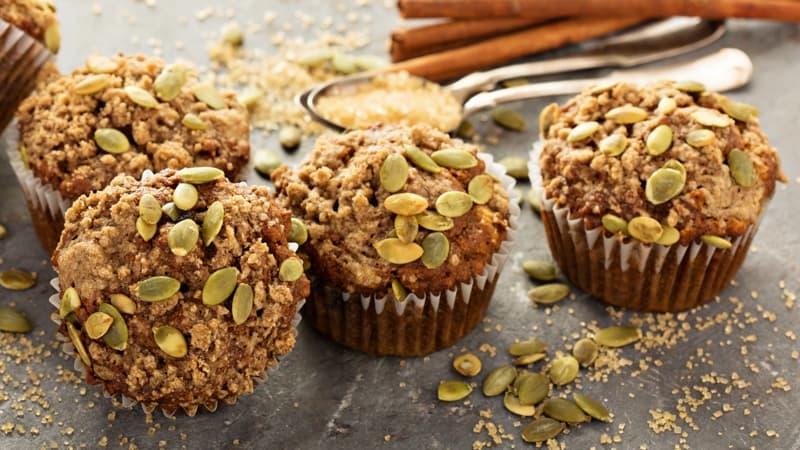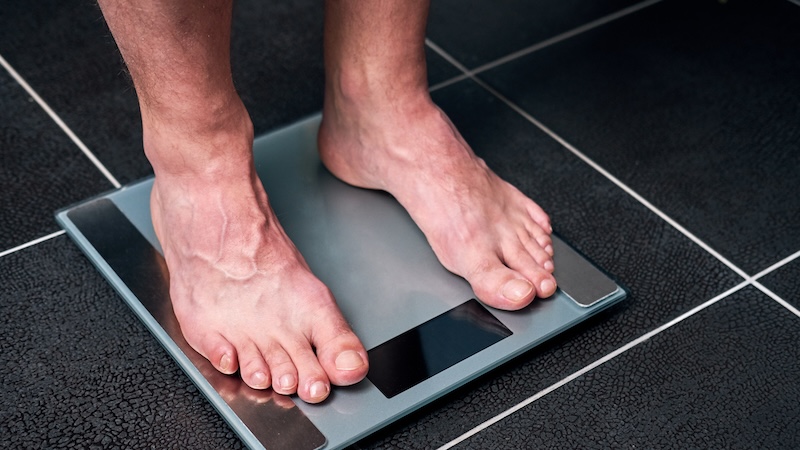Six Health Benefits of Pumpkin Seeds
Weekly wellness tips for your weekly wellness

Maybe you love the process of carving a jack-o’-lantern, scooping out the seeds and roasting them. But these days it’s easy to find raw, sprouted and roasted pumpkin seeds year-round (the shelled seeds, which are green, are often called pepitas). So you don’t have to wait until October to enjoy their health benefits!
A 1-ounce portion of pepitas (roughly 1/4 cup) provides about 150 calories, 15 grams of healthful fat, just a few grams of carbs and an impressive 8 to 10 grams of plant protein. They’re also nutrient-packed and health protective. Here are six key pumpkin seed perks, and some simple ways to incorporate them into your meals and snacks.
Pumpkin seeds are high in magnesium and other minerals.
Pumpkin seeds are a good source of magnesium, manganese, iron, zinc and copper. Magnesium helps improve mood and sleep, while manganese plays a role in collagen production and promotes skin and bone health. Iron and copper are involved with energy production, and iron also helps transport oxygen to our cells. Zinc supports immunity, skin health and vision. Just one serving of pumpkin seeds can supply 14 to 42% of the daily target for these essential nutrients.
They’re high in antioxidants.
In addition to minerals, these mighty seeds are also packed with cell-protective antioxidants, including carotenoids and vitamin E. In addition to reducing inflammation, antioxidants help fend off premature aging and chronic diseases.
Pepitas are full of beneficial fats.
Pumpkin seeds are one of the best sources of plant-based omega-3 fatty acids, called alpha-linolenic acid or ALA. Only a small fraction of ALA gets converted into the important DHA and EPA omega-3s, which are found in fatty fish like salmon. However, ALA benefits include protecting against heart disease, reducing risk of artery hardening and fighting inflammation.
They can help control blood sugar.
On top of being low in carbs and a good source of plant protein, research suggests that eating pumpkin seeds may help protect against type 2 diabetes or reduce its complications in other ways, such as improving insulin regulation and protecting organs against the consequences of diabetes.
Pumpkin seeds can boost the immune system.
In addition to the zinc and iron in pumpkin seeds, which are both vital for immune function, pumpkin seeds possess anti-fungal and anti-viral properties. Pumpkin seeds are also not a common trigger of allergies and intolerances.
They may improve sperm quality.
Research shows that both pumpkin seeds and pumpkin seed oil help to protect prostate health. The seeds’ zinc content may also support male fertility, as low zinc levels have been tied to reduced sperm quality.
Here’s how to eat more pumpkin seeds:
You can sprinkle pepitas on just about anything, from oatmeal or overnight oats to garden salads, cooked veggies, stir-fries, soups, whole-grain dishes, tacos and, of course, desserts. Roasted shell-on pumpkin seeds make a great snack or trail mix add-in. Pumpkin seed butter can be whipped into smoothies, swirled into yogurt, drizzled over fruit or used as the base for energy bars or balls.


